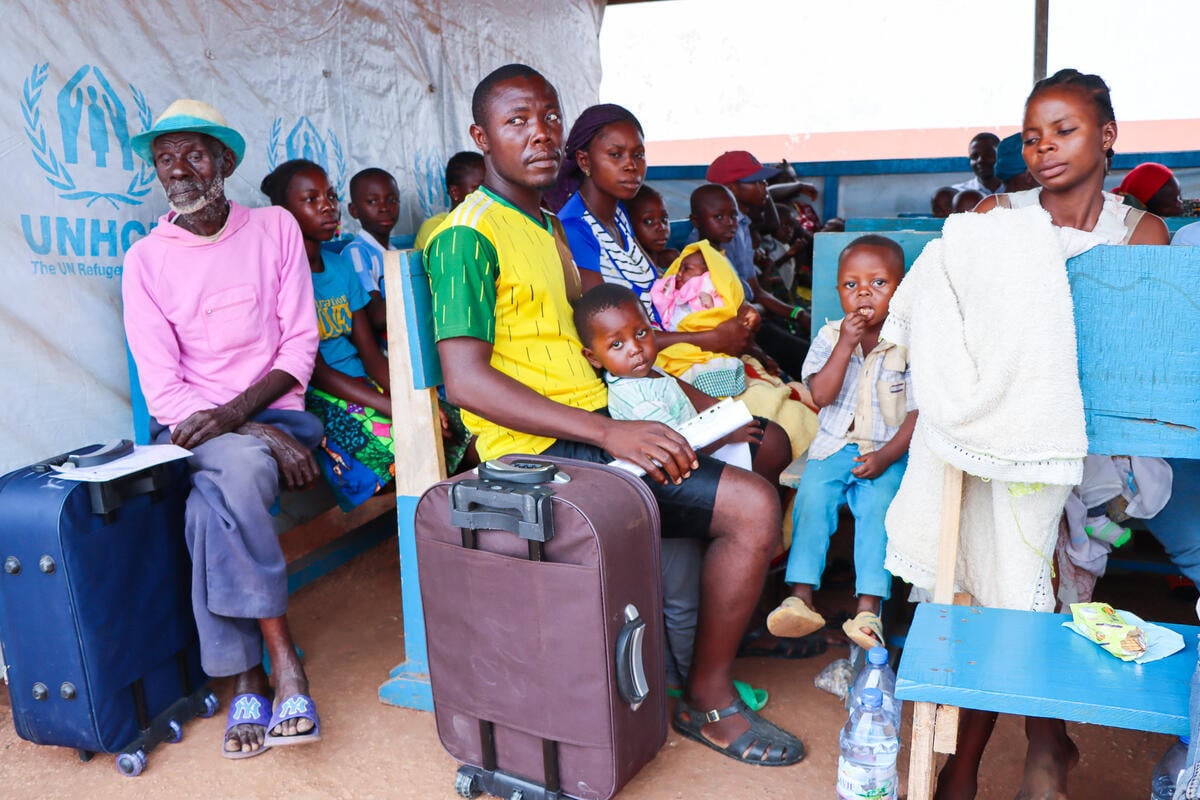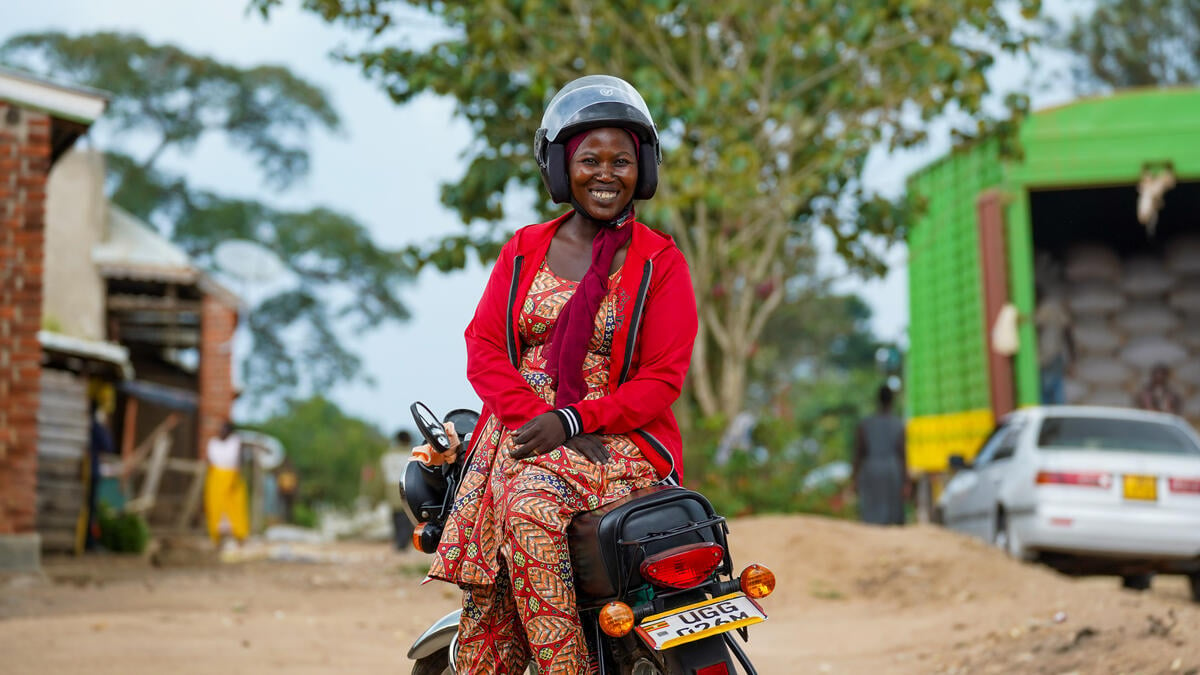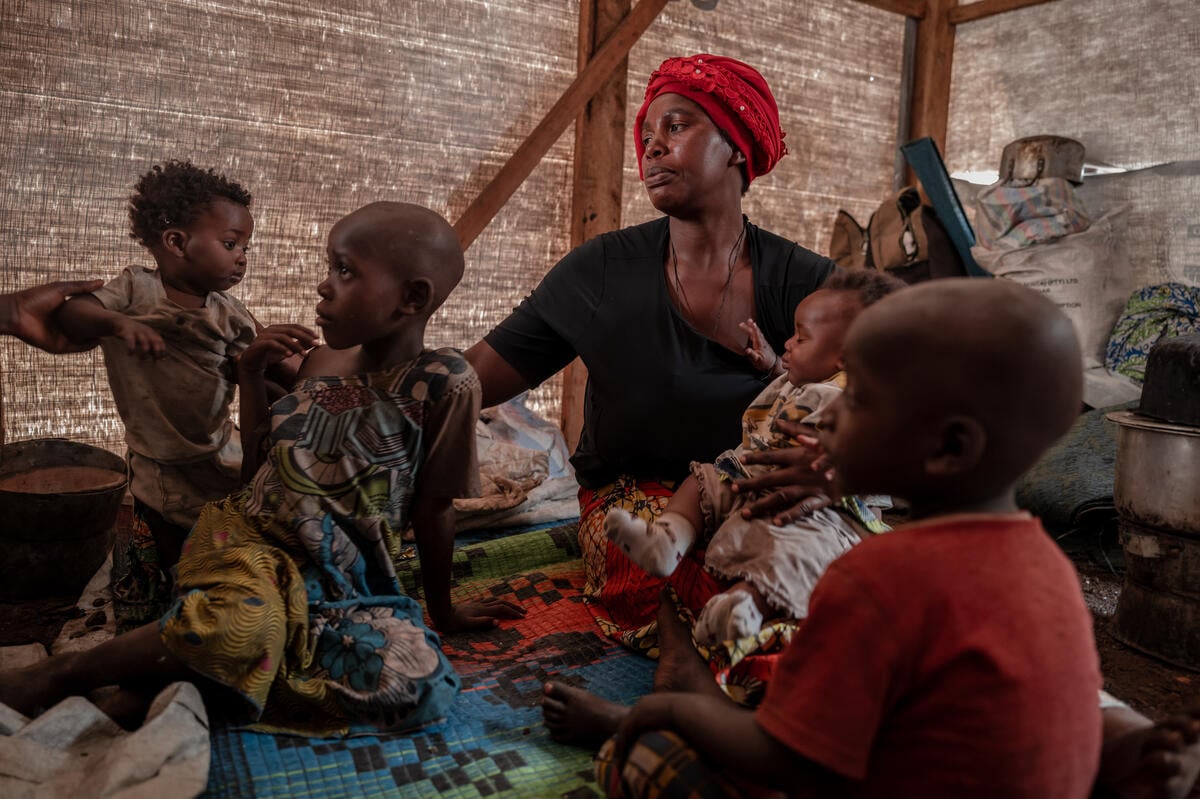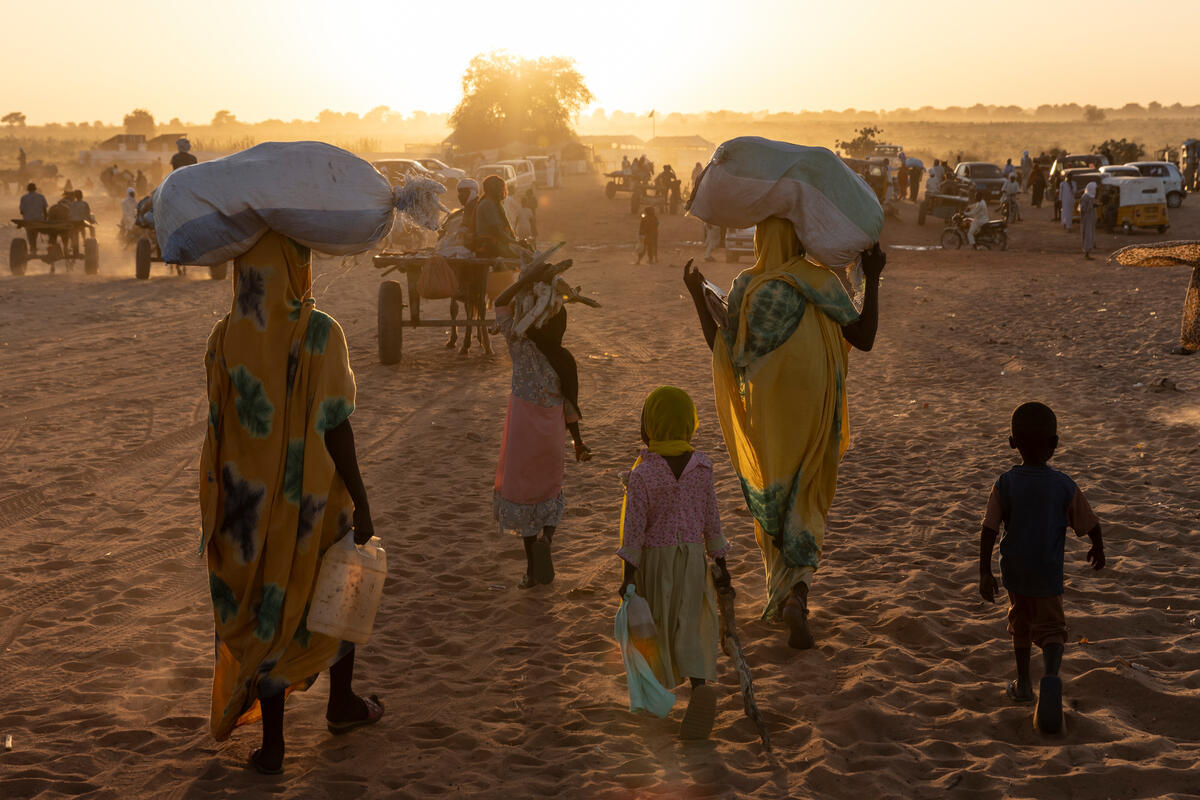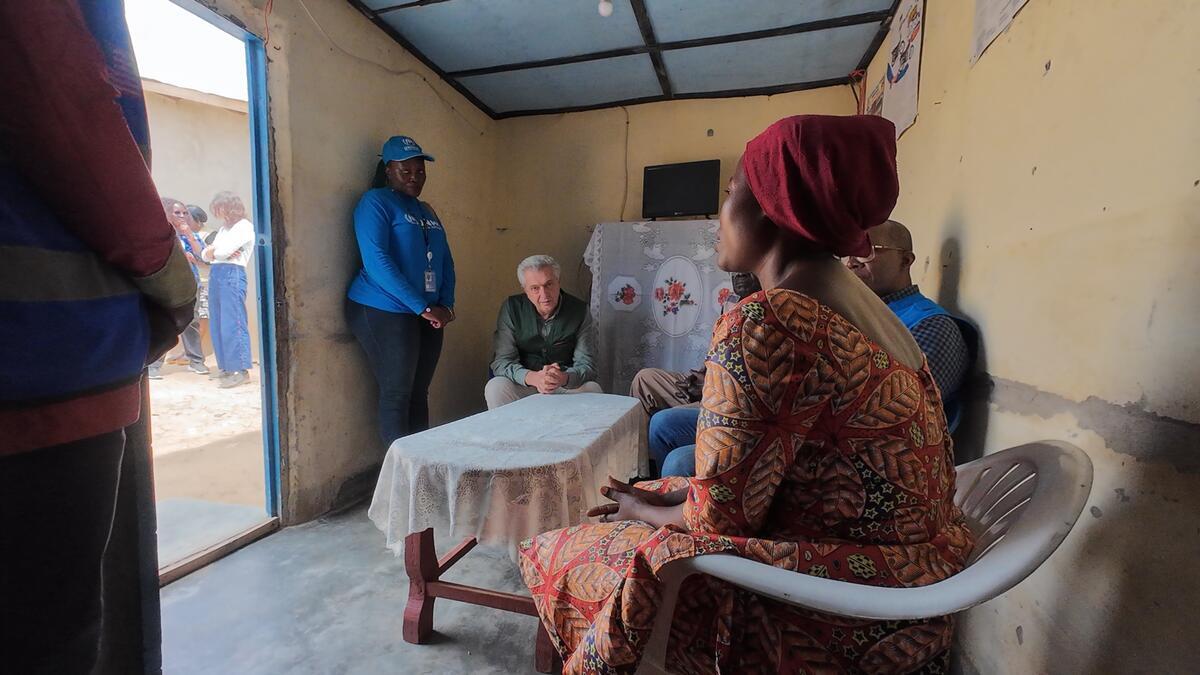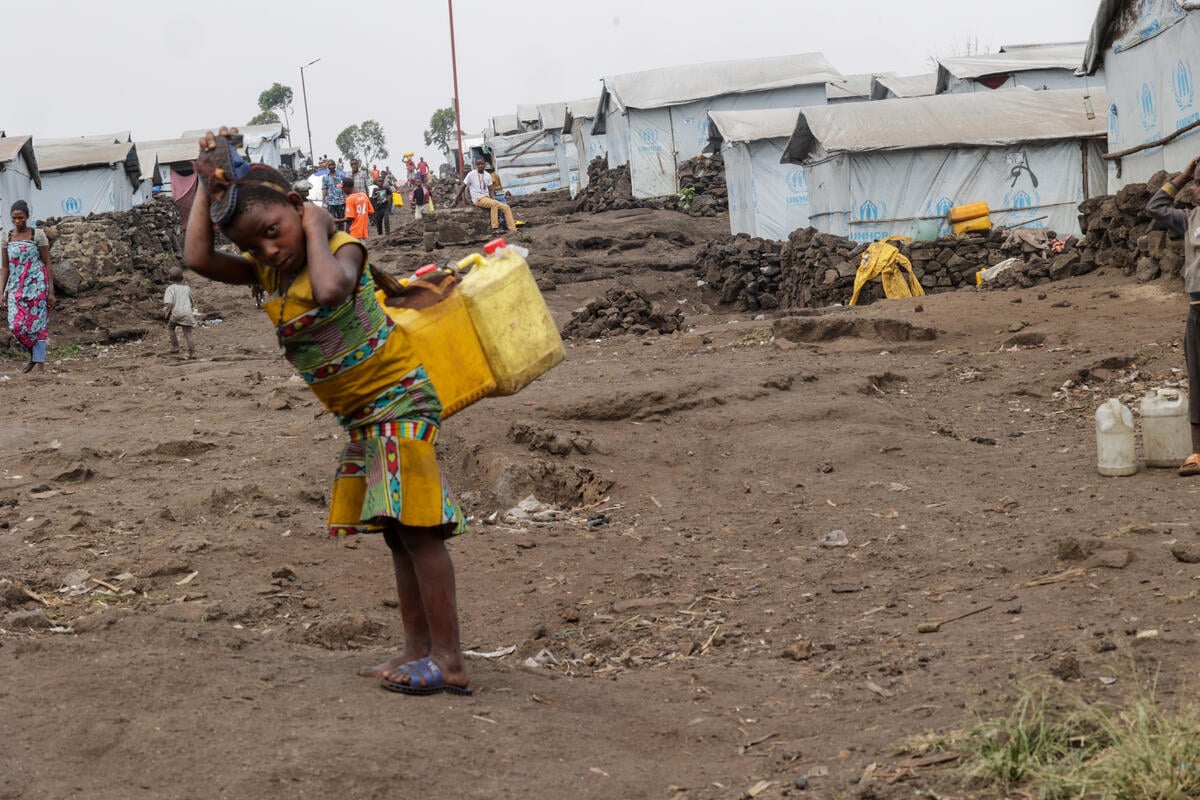DRC: Thousands continuing to flee in North Kivu
DRC: Thousands continuing to flee in North Kivu
Thousands of Congolese continue to flee the latest round of fighting between government forces, renegade troops and rebels in North Kivu province in the east of the Democratic Republic of the Congo (DRC).
An estimated 25,000 to 35,000 Congolese refugees spent Tuesday and Wednesday nights in the town of Bunagana in Uganda's western Kisoro province bordering the DRC. During the day, most of the men have been crossing back into the DRC to check on their properties, leaving behind 12-15,000 women and children. Nearly all of them are staying with Congolese relatives and friends living in Bunagana.
According to Ugandan authorities, most of the Congolese say they prefer to stay with their relatives close to the border and want to go back as soon as the situation improves. As of last night (Thursday), only some 200 people had registered in the UNHCR-supported Nyakabanda reception site, some 20 km inside Uganda. The Ugandan district authorities, UNHCR, UNICEF, WFP, the Uganda Red Cross and MSF France have stored in a nearby warehouse blankets, jerry cans, plastic tarpaulins, food and medical supplies that can be used in Nyakabanda, if needed.
A UNHCR field team is scheduled to return to Kisoro later this morning. Our teams in Uganda have conducted a number of field missions to Kisoro since late August, monitoring arrivals and providing assistance following an earlier influx of 10,000 Congolese on 21 August.
We are also receiving reports from our staff in the DRC's North Kivu province that thousands of Congolese have fled the town of Sake and its surroundings west of Goma due to intense fighting. Estimates are that most of the town's population fled yesterday (Thursday). Columns of displaced are heading towards Muganga camp for internally displaced people, some 15 kilometres from Goma, and towards Goma itself.
There are several camps and makeshift sites in the Mugunga area hosting at least 35,000 displaced people. The number continues to rise daily. The conditions are desperate, with the displaced sheltering in flimsy huts made of leaves and sticks, in overcrowded school buildings and under the open sky.
Due to increasingly difficult and limited access in the region, we fear that the known displacement is only the tip of the iceberg. Yesterday, we had no access to Mugunga as the security situation there deteriorated rapidly. We are also negotiating with authorities to open a site for newly displaced in Goma town itself. Over the past days, UNHCR staff in Goma have witnessed the constant arrival of trucks loaded with IDPs and their belongings. Since December 2006, the number of newly displaced in North Kivu has surpassed 180,000 and continues to grow. In total, there are more than 640,000 IDPs in this eastern DRC province.
UNHCR is coordinating closely in the overall relief effort involving other UN agencies and NGO partners, particularly with UNICEF and WFP, who have provided substantial support to the displaced over the past weeks with distributions of household items, plastic sheeting and food rations.
We again urge all parties to the conflict in North Kivu to refrain from attacks on the civilian population and on the displaced in particular. In screening new arrivals, UNHCR and its NGO partner have identified a number of rape and torture victims. Our teams also received reports of killings of civilians. Such acts are serious violations of the international humanitarian law.
We are still hoping that negotiations to resolve the underlying causes of the conflict can resume, preventing further displacement and deterioration of an already devastating humanitarian situation.

